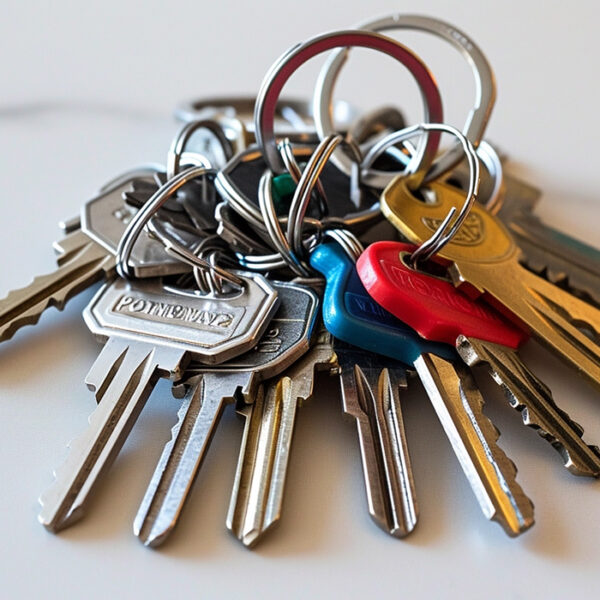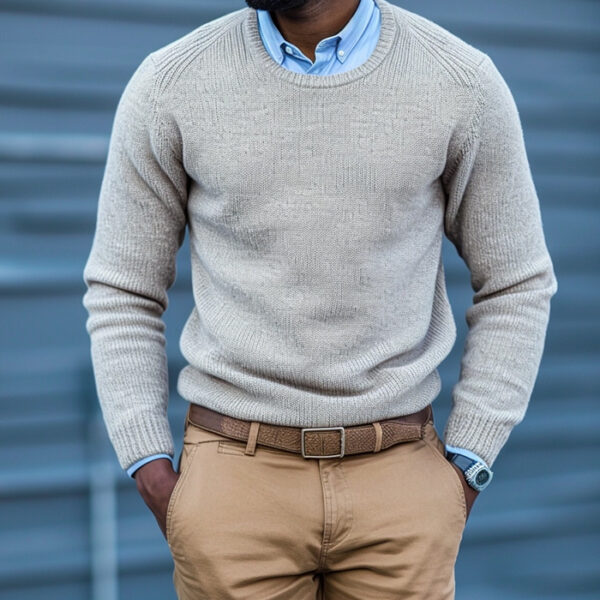People spend a lot of time, money, and effort learning to be a more persuasive speaker or negotiator. Public speaking seminars are big money these days!
But what if there were something you could do that would dramatically increase your persuasiveness as a passive effect, without any extra effort or training on your part? Would you take advantage of it?
If you would, it's time to start thinking about your personal appearance.
Attractiveness and Persuasion
We like to think that persuasion is a matter of good arguments and compelling rhetoric — in part because we don't like to believe that we can be swayed by anything less.
Unfortunately, science says otherwise.
There have been a number of studies in the last fifty years or so that demonstrate people's tendency to be more persuaded by attractive speakers than by unattractive ones.
In 1979, Shelly Chaiken published a paper on her study of instructors in academic settings. She found that instructors rated as “attractive” by their students could generate significantly higher levels of agreement from their audience than ones rated as “unattractive.”
Even more impressively, the study also demonstrated that students actually performed better when they had an instructor they found attractive, across various numerical evaluations including grade point average and Scholastic Aptitude Test (SAT) scores.
Why Attractiveness Works
It's counter-intuitive to think that just being prettier can make people under your leadership perform better, or make audiences more likely to agree with your point of view.
Worth bearing in mind is that it's not a one-way street. Attractive individuals tend, on the whole, to have an easier time in social situations than unattractive ones. That in turn encourages them to be more outgoing and social, which gives them more practice with their interactive skills.
But that said, there's also an effect on the viewer's brain when a person is particularly attractive. Human brains tend to take a broad, generalized assumption about a person, such as “he looks good,” and then ascribe that quality to specific judgments as well, such as “he's probably a good teacher,” or “he must be a good father.”
This is called the “halo effect” in psychology. Studies have shown, with remarkable consistency, that the halo effect is real and that it has a non-zero effect on people's success, in everything ranging from education to politics to courtroom defenses (Efran 1974, was a particularly telling one, showing that attractive people received much more lenient sentences than unattractive ones, even when convicted of the exact same crime).
The same effect comes into play when you're trying to persuade, in any setting or situation. The more positive people's first visual impression of you is, the more positive traits they'll associate with everything you say.
How to Dress to Persuade
It should be obvious, then, that anyone who needs to persuade — for a job, a cause, or anything else — wants to look as “good” as possible.
But what is “good,” in personal appearance?
1. Free of Imperfections
To persuade, be fussy.
Be fussy about your hair, be fussy about your shoes; be fussy about your clothes. Everything counts.
Your goal when you prepare for a persuasive speaking or sales type environment is to eliminate imperfections.
A tuft of hair out of place or a scuff on your shoes may not seem like much. And realistically, most people won't consciously notice something minor like that. But their subconscious mind is still picking up the visual signal of asymmetry, and that tells the back of their brain that something isn't quite right.
The result is a vague, indefinable off-putting sensation that the viewer won't even be aware of — but that will be coloring his or her judgment of you.
So take the time you need to get everything right. Aim for perfection. Go for the extra slow shave, the dollop of expensive but just-right-for-you hair product; the shoeshine in the airport. They end up mattering.
2. Well-Fitted
The neat, crisp outline of well-fitted clothing serves the same purpose as painstaking attention to detail: it removes subtle asymmetries from your overall image.
You're never going to look as attractive as you can if you have loose folds of cloth sagging off your body. A too-tight fit is just as bad, since it wrinkles and bunches when you move, so aim for a fit that's close to the skin, but not restrictive.
Pay attention to your proportion here as well, especially if you're outside the average build for a man. It's easy for details like the pockets on shirts and jackets or the length of cuffs to get pulled far enough away from “normal” that the look is off-putting if you're unusually large or small.
A little tailoring goes a long way. Plan on having the majority of your clothes adjusted by a tailor who knows you well.
3. Dressed Up, Not Dressed Down
Finding the exact level of formality can be tricky, especially if you're speaking in a casual or non-traditional setting.
More than one politician, for example, has gotten himself in trouble by showing up at a soup kitchen or a disaster shelter wearing a tailored suit and an expensive silk tie. That's not influential — that's just rude!
But in general, when attempting to persuade, you want to err on the side of looking like you dressed up for the occasion, not dressed down. Lean toward the more formal end of what your audience will be wearing (but not too much beyond that).
There's a very simple reason for this one: you're trying to influence, and therefore your clothes should be the clothes of an influential man. The halo effect will kick in for you once again, making people much more receptive to your words and ideas.
For most of the Western world, that usually means a suit or blazer-style jacket. The V-shaped chest opening and squared shoulders speak to our subconscious minds of power and influence — and as an added bonus, they flatter the male physiology too, making you look more dominant.
Don't be afraid to look a little more dressed up than the people around you. That's your way of showing them that you're a person of importance. Subconsciously, they'll assume that your ideas are important too.
But Does It Really Work?
If that all sounds like a hoax or a gimmick to you, relax. You're not alone. It's hard to believe that a change of clothes can really make that much difference in people's success, as persuasive speakers or in any other field.
The science is sound, though, and there's a lot of it. People have been studying the halo effect and related psychological behaviors for almost a hundred years, and there's nothing to suggest that any of it's untrue.
There are limits to the effect, certainly. Even a very well-dressed man isn't going to be listened to if he's shouting about the aliens in his head. But a well-dressed man speaking calmly about reasonable-sounding ideas is much more likely to be believed than the same man giving the same speech in a sloppy outfit.
And that's just not a handicap you should give yourself. Certainly not when the fix is as simple as dressing up, getting a good fit from your tailor, and paying attention to your details!







